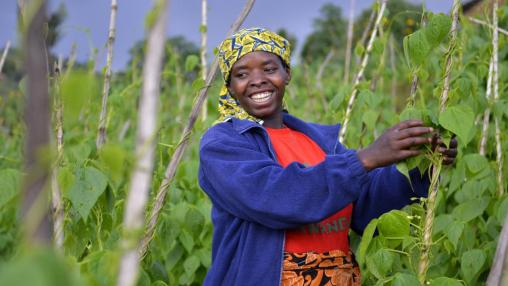
Impact of COVID-19 on National Food Systems
The CGIAR COVID-19 Hub has released updated policy notes regarding the impact of the COVID-19 pandemic on global and regional food systems. This latest series of updates covers several FSP priority countries, including Ethiopia, Nigeria, Malawi, and Bangladesh.

Smallholder and agrifood SME resilience to shocks: Lessons from COVID-19 for the UN Food System Summit
The COVID-19 pandemic has revealed both the vulnerability and the resilience of food supply chains. Supply chains from farm to retail have been disrupted, primarily by government-imposed lockdowns and other restrictions affecting labor supply, input provisioning, logistics, wholesale, retailing, and food service. Supply chains have also shown a good deal of resilience and innovative capacity to adapt to the major supply and demand shocks they encountered.
FEWS NET Ethiopia Food Security Alert - May 2021
IPC Ethiopia Alert - December 2020
IPC Ethiopia Alert - June 2021
Food Price Shocks Tool
The Food Security Portal's Price Shocks Tool provides an interactive way to explore the impact of price changes on poverty. When you set hypothetical price shock(s) using the tool, net impacts of selected price changes are generated per household and the impact on poverty is automatically calculated accordingly.
IPC Ethiopia Alert - September 2020

Food Insecurity in East Africa
East Africa facing acute food insecurity as drought continues, alerts FEWS and FAO

Increasing resilience requires an effective framework for measurement
In the face of price spikes, climate change, and other stressors from the national to the global scale, the promotion of resilience has gained traction in the development community as a means of insuring that populations vulnerable to food and nutrition insecurity are equipped with the tools to survive and even thrive in our unpredictable world.

New resource launched to showcase IFPRI’s commitment to Ethiopia
Did you know that IFPRI has worked in Ethiopia for over 30 years? The partnership dates back to the 1980s, where IFPRI’s research originally focused on “famine and food insecurity.”